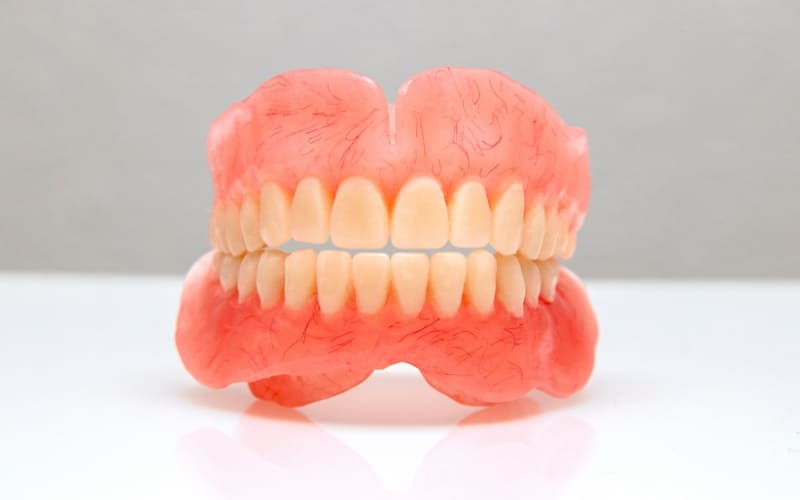Introduction
Dentures have been a trusted method for restoring smiles and oral functionality for generations. Whether you’ve lost teeth due to decay, injury, or age, modern dentistry offers a variety of denture options to meet your unique requirements. Different types of dentures have their own advantages and disadvantages, so it’s essential to understand your options to make an informed decision.
1. Partial Dentures
Partial dentures are designed to replace one or more missing teeth in an arch. They consist of replacement teeth attached to a gum-colored base, typically made from acrylic or metal. Partial dentures are secured using clips or brackets, which attach to the adjacent natural teeth.
Benefits and Drawbacks
1. Benefits:
– Affordable option compared to other denture types.
– Easier to adapt to for most patients.
– It keeps the natural teeth from moving.
2. Drawbacks:
– May feel less stable than other options.
– Potential for discomfort or rubbing against natural teeth.
– Requires daily removal for cleaning and maintenance.
2. Full Dentures
Full or complete dentures replace all the teeth in one or both dental arches. They consist of a full set of replacement teeth mounted on a flesh-colored base designed to fit the shape of the patient’s mouth.
Advantages and Disadvantages
1. Advantages:
– Comprehensive solution for complete tooth loss.
– Restores aesthetics and chewing function.
– Cost-effective compared to some alternatives.
2. Drawbacks:
– May require adhesive for stability.
– Adjustment period needed for speaking and eating.
– Potential for discomfort or sore spots during initial use.
3. Implant-Supported Dentures
Dentures supported by implants are more robust and secure and are a great alternative to regular ones. These dentures are anchored by dental implants surgically placed into the jawbone. These can be removable or fixed, depending on the patient’s preference.
Benefits and Drawbacks
1. Benefits:
– Exceptional stability and durability.
– Improved chewing efficiency and speech.
– Prevents bone loss in the jaw.
2. Drawbacks:
– Requires oral surgery for implant placement.
– Higher initial cost than traditional ones.
– Healing time is necessary before attaching the denture.
4. Immediate Dentures
Immediate dentures are created before tooth extraction. These types of dentures are placed immediately after removing the natural teeth, allowing the patient to have teeth during the healing process.
Pros and Cons
1. Pros:
– No waiting for teeth replacement.
– Protects oral tissues during healing.
– Aesthetic and functional benefits from the start.
2. Cons:
– Frequent adjustments may be needed.
– May require a reline or replacement as the gums heal and shrink.
– Initial discomfort as the mouth adapts to the denture.
5. Overdentures
Overdentures, also known as implant-retained dentures, compromise traditional and implant-supported dentures. Dental implants secure them in place but can still be removed for cleaning.
Advantages and Disadvantages
1. Advantages:
– Improved stability and chewing function.
– Easier maintenance compared to traditional dentures.
– Less invasive than fixed implant-supported dentures.
2. Drawbacks:
– May require relining or replacement as the jaw changes.
– The initial investment is larger than with regular dentures.
– Slightly less stable than fixed implant-supported dentures.
6. Snap-On Dentures
Snap-on dentures, also known as “overdentures with locator attachments,” offer a more secure fit than traditional removable dentures. These types of dentures attach to implants using special attachments or snaps.
Advantages and Disadvantages
1. Advantages:
– Improved stability and confidence.
– When compared to regular dentures, they are easier to clean.
– Enhanced chewing function.
2. Drawbacks:
– The initial investment is larger than with regular dentures.
– May require periodic replacement of attachments.
– There is also a possibility of wear and tear as time passes.
Factors to Consider When Choosing Dentures
When deciding on the right type of dentures for your needs, several factors should be considered, including:
– Your budget and insurance coverage.
– Your overall health and any medical conditions.
– The number of missing teeth and their location.
– Your comfort and adaptability to different denture types.
Consulting with a qualified dentist is crucial to making an informed decision based on your unique circumstances.
Final Words!
In dentures, the possibilities are diverse, and each type has its benefits and drawbacks. The ideal choice depends on your dental situation, budget, and personal preferences. Whether you opt for partial dentures, full dentures, implant-supported dentures, immediate dentures, overdentures, or snap-on dentures, the key is to consult a dental professional who can guide you toward the most suitable option.
For the best advice on dentures, look no further than Missouri City Dentist – Excel Dental. Our experienced professionals will work closely with you to assess your unique needs and provide the perfect denture solution. Don’t let missing teeth hold you back – restore your smile and confidence with the fitting dentures today!
You can also read our other article, Tips For Proper Denture Aftercare.


